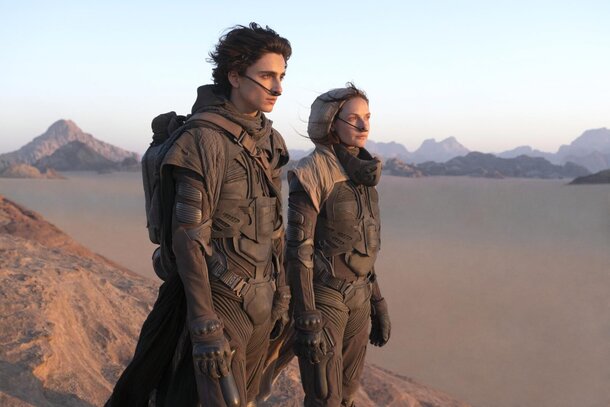The release of Denis Villeneuve's two action-packed films based on Frank Herbert’s novel Dune has made the story a global bestseller again. However, most of the audience failed to grasp the deeper meaning of the tale. The story of Paul Atreides appears to follow the classic hero’s journey — he loses his family, faces trials, becomes a warrior, defeats enemies, and gains power. The villains are vanquished, the heroes prevail, and they even gain the spice melange, which is the foundation of the universe's structure.
But this isn’t a victory — it’s a tragedy, one that Herbert deliberately unravels before us.
Why Paul Atreides is Actually Horrifying
Herbert doesn’t show us the path of a chosen hero; instead, he warns about the dangers of fanaticism, power, and blindly following leaders. The core message of Dune isn’t admiration for Paul’s destiny but a warning about what it means for humanity when such a leader rises.

In both the first book and film Dune, Paul sees that his leadership will lead to a catastrophe. His prophetic visions show a galactic war, a jihad that will annihilate 60 billion people. Yet, even aware of this, he cannot stop. If he does, all those close to him will perish. In Dune: Part Two, Paul accepts his fate and burdens himself with the power.
The Atreides Are No Better Than the Harkonnens
Paul ultimately becomes the messianic ruler that the Bene Gesserit order had sought to create. While the noble Atreides are compared to the greedy Harkonnens, their actions prove to be far more destructive.
Paul becomes a religious figurehead, worshipped by his followers, who believe he is the messenger of destiny and are willing to kill and die for him. This is not the first, nor the last, time humanity elevates a mortal to the status of a god, but in Dune, the consequences of this deification are shown on a cosmic scale.
Spoilers for Dune: Part Three
Even after Paul realizes his mistake and retreats into the desert, the religious cult surrounding him continues to grow, deifying him as their messiah. His son, Leto II, takes this one step further by literally turning himself into a god-emperor, instituting a millennia-long dictatorship.

Herbert explores not just how a cult of personality is formed, but how people willingly surrender their freedom to a powerful leader, convinced that he knows what is best for them. Dune is not simply a fight for the cosmic spice that reveals the truth; it is a profound meditation on the nature of power, its seduction, and its consequences.










